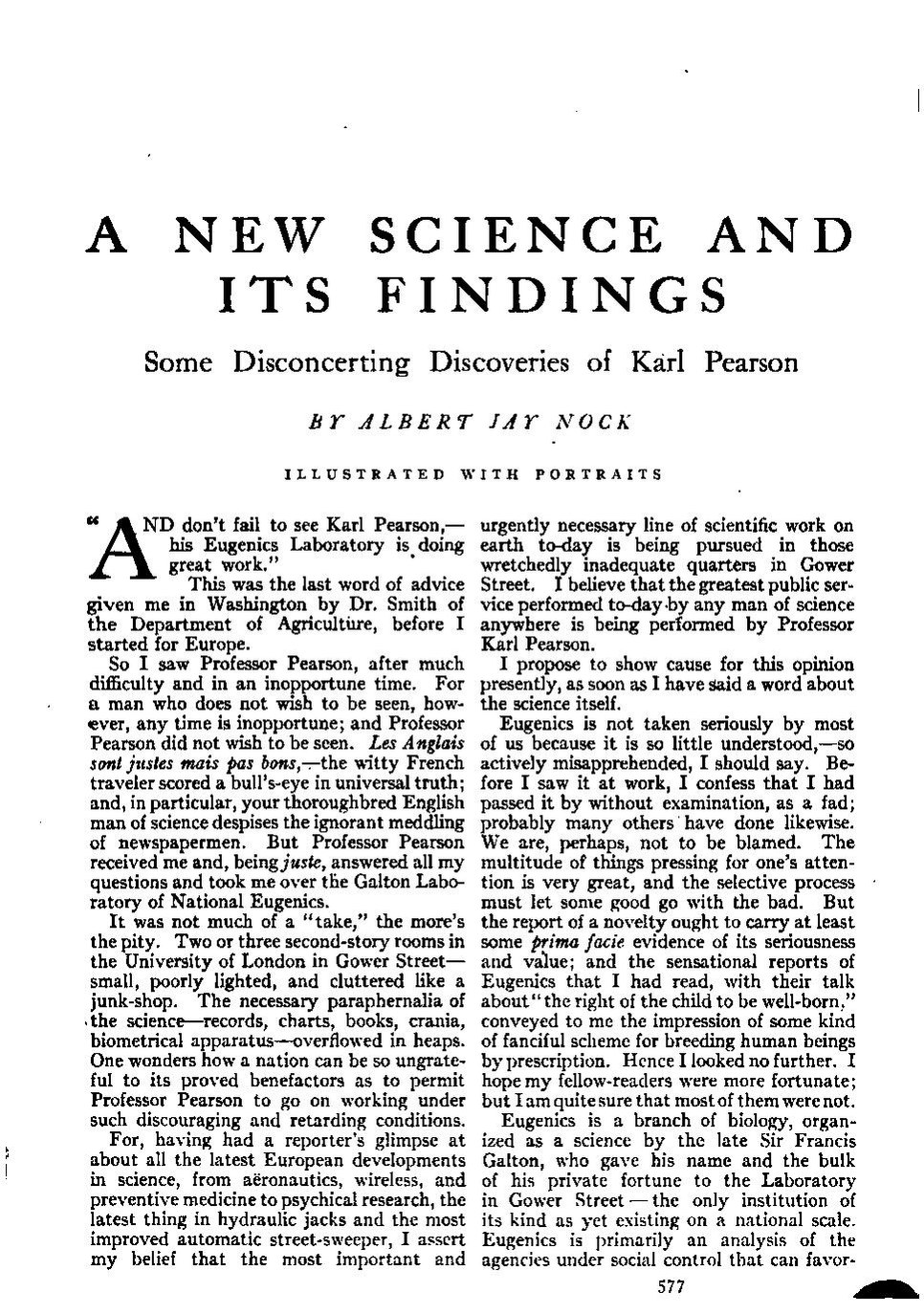A NEW SCIENCE AND ITS FINDINGS
Some Disconcerting Discoveries of Karl Pearson
BY ALBERT JAY NOCK
ILLUSTRATED WITH PORTRAITS
"AND don't fail to see Karl Pearson,— his Eugenics Laboratory is doing great work."
This was the last word of advice given me in Washington by Dr. Smith of the Department of Agriculture, before I started for Europe. So I saw Professor Pearson, after much difficulty and in an inopportune time. For a man who does not wish to be seen, however, any time is inopportune; and Professor Pearson did not wish to be seen. Les Anglais sont justes mais pas bons,—the witty French traveler scored a bull's-eye in universal truth; and, in particular, your thoroughbred English man of science despises the ignorant meddling of newspapermen. But Professor Pearson received me and, being juste, answered all my questions and took me over the Galton Laboratory of National Eugenics.
It was not much of a "take," the more's the pity. Two or three second-story rooms in the University of London in Gower Street—small, poorly lighted, and cluttered like a junk-shop. The necessary paraphernalia of the science—records, charts, books, crania, biometrical apparatus—overflowed in heaps. One wonders how a nation can be so ungrateful to its proved benefactors as to permit Professor Pearson to go on working under such discouraging and retarding conditions.
For, having had a reporter's glimpse at about all the latest European developments in science, from aeronautics, wireless, and preventive medicine to psychical research, the latest thing in hydraulic jacks and the most improved automatic street-sweeper, I assert my belief that the most important and urgently necessary line of scientific work on earth to-day is being pursued in those wretchedly inadequate quarters in Gower Street. I believe that the greatest public service performed to-day by any man of science anywhere is being performed by Professor Karl Pearson.
I propose to show cause for this opinion presently, as soon as I have said a word about the science itself.
Eugenics is not taken seriously by most of us because it is so little understood,—so actively misapprehended, I should say. Before I saw it at work, I confess that I had passed it by without examination, as a fad; probably many others have done likewise. We are, perhaps, not to be blamed. The multitude of things pressing for one's attention is very great, and the selective process must let some good go with the bad. But the report of a novelty ought to carry at least some prima facie evidence of its seriousness and value; and the sensational reports of Eugenics that I had read, with their talk about "the right of the child to be well-born," conveyed to me the impression of some kind of fanciful scheme for breeding human beings by prescription. Hence I looked no further. I hope my fellow-readers were more fortunate; but I am quite sure that most of them were not.
Eugenics is a branch of biology, organized as a science by the late Sir Francis Galton, who gave his name and the bulk of his private fortune to the Laboratory in Gower Street—the only institution of its kind as yet existing on a national scale. Eugenics is primarily an analysis of the agencies under social control that can favorably577
